Crescent Sustainability Initiatives
Partnerships for the Goals (SDG 17)
COMMITMENT TO EDUCATIONAL OUTREACH AND SDGS
The B.S. Abdur Rahman Crescent Institute of Science and Technology (BSACIST) exemplifies a robust commitment to educational outreach that aligns with the Sustainable Development Goals (SDGs), particularly emphasizing quality education (SDG 4) and its interconnectedness with other goals. Through a variety of initiatives, BSACIST actively engages with the wider community, including local residents, alumni, and marginalized groups, to foster inclusive education and lifelong learning. Notably, the organization of educational competitions for school children in adopted villages not only enhances learning experiences but also connects participants to national pride and cultural heritage. These events provide university students with opportunities to serve as role models, inspiring younger generations to pursue higher education and dismantle barriers to educational advancement.
BRIDGING THE DIGITAL DIVIDE
In addition to educational competitions, BSACIST has made significant strides in bridging the digital divide by distributing computers to primary school children in underserved areas, such as Keerapakkam and Karasangal. This initiative equips students with essential technological tools and fosters digital literacy, enhancing learning opportunities and preparing them for future academic and professional endeavors. Tailored lectures and interactive demonstrations conducted by university students and faculty in local schools further create a collaborative learning environment, addressing specific educational needs and empowering both students and community members.
ADDRESSING CRITICAL COMMUNITY ISSUES
BSACIST’s outreach extends beyond education to encompass critical issues such as poverty, hunger, health, gender equality, and environmental sustainability. For instance, in alignment with SDG 1: No Poverty, the institute implements vocational training and skill development programs for local residents, particularly marginalized individuals, equipping them with the necessary skills to secure decent employment. Outreach activities involving alumni serve as a bridge between the university and the community, allowing former students to share their experiences and inspire current students and local residents to pursue educational and professional opportunities.
PROMOTING FOOD SECURITY AND HEALTH
Moreover, BSACIST addresses SDG 2: Zero Hunger by organizing community workshops that educate residents about sustainable agricultural practices and nutrition, promoting food security and healthy eating habits. These workshops foster a collaborative approach to tackling hunger and malnutrition, ensuring community members are equipped with the knowledge to make informed decisions about their food sources. Health and well-being (SDG 3) are prioritized through health awareness campaigns focusing on preventive care, mental health, and wellness, often in partnership with local health organizations to provide screenings and educational sessions.
EMPOWERING WOMEN AND GIRLS
The university also actively promotes gender equality (SDG 5) through educational initiatives that empower women and girls in the community. Programs aimed at fostering leadership skills, entrepreneurship, and self-defense enhance the capabilities of female participants while challenging societal norms that may hinder their progress. By creating safe spaces for dialogue and learning, BSACIST encourages women to take active roles in their communities, contributing to a more equitable society.
FOSTERING A RESILIENT COMMUNITY
In summary, BSACIST’s comprehensive outreach educational activities exemplify a holistic approach to advancing the SDGs within the wider community. By addressing critical issues such as poverty, hunger, health, and gender equality, the university fosters a culture of learning and empowerment that extends beyond its campus. These initiatives not only enhance educational opportunities but also build a more informed and engaged community capable of addressing today’s challenges and contributing to a sustainable future. Through these efforts, BSACIST demonstrates the transformative power of education in creating resilient communities.
SDG 4 – QUALITY EDUCATION
Fostering Community Connection Through Educational Outreach
B.S. Abdur Rahman Crescent Institute of Science and Technology (BSACIST) has strongly committed to educational outreach by organizing competitions for school children in adopted villages during the 76th Independence Day celebrations. This initiative promotes inclusive education and strengthens the university’s support for early learning and community development. By extending educational activities beyond campus, the university effectively breaks down barriers between higher education institutions and local communities, fostering meaningful connections that inspire young learners.
Integrating educational competitions with Independence Day celebrations enhances the learning experience while connecting it to national pride and cultural heritage. This thoughtful approach not only makes the outreach more impactful but also allows university students involved in organizing these activities to serve as role models, potentially motivating younger students from the villages to pursue higher education.
The culmination of the competitions in an award ceremony on campus provides a significant opportunity for the winning students. By inviting them to the university, BSACIST creates a tangible connection between young learners and higher education, helping them visualize themselves in such settings. This exposure can break multi-generational barriers to educational advancement and serves as a powerful motivational tool for aspiring students.
This comprehensive outreach program exemplifies how universities can support early education while fostering lifelong learning aspirations. By creating educational opportunities in adopted villages, BSACIST is dedicated to reducing educational inequalities and enhancing access to quality educational experiences, ultimately building a stronger, more educated community equipped to face future challenges.
Empowering Local Schools with Technology
In a notable initiative, BSACIST distributed computers to primary school children in the adopted villages of Keerapakkam and Karasangal on September 12, 2022. This event, attended by university officials and local leaders, underscores the university’s commitment to improving educational resources in underserved areas and bridging the digital divide.
The distribution of computers is a significant step toward enhancing learning opportunities for young students. By providing access to technology, BSACIST equips children with essential tools for education and fosters digital literacy skills crucial for their future academic and professional endeavours.
In addition to computer distribution, BSACIST’s outreach includes tailored lectures and demonstrations conducted by students and faculty in local schools. These voluntary initiatives aim to engage the community through interactive learning experiences that address specific educational needs, fostering a collaborative learning environment that benefits both students and community members.
Through these outreach activities, BSACIST exemplifies how academic institutions can play a vital role in community empowerment and development. By extending educational initiatives beyond the campus, the university strengthens its ties with the community and ensures that education remains accessible and relevant, contributing to a more informed and capable society.
Educational Outreach – I
Fostering Community Connection
The B.S.A. Crescent Institute of Science and Technology, through its National Service Scheme (N.S.S.) and Unnat Bharat Abhiyan (U.B.A.) initiatives, demonstrated exemplary commitment to educational outreach by organizing competitions for school children in their adopted villages as part of the 76th Independence Day celebrations. This initiative inclusive education and the university’s role in supporting early years learning and community development. By extending educational activities beyond campus boundaries, the institution actively works to break down barriers between higher education institutions and local communities, creating meaningful connections that can inspire and motivate young learners.
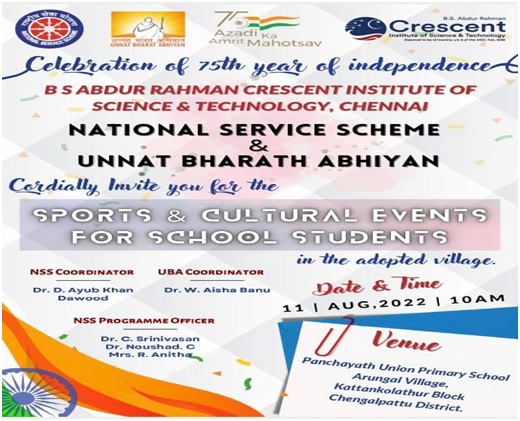
Figure XVII (4.3) –1: Celebration of 75th Year of Independence
The strategic decision to integrate educational competitions with Independence Day celebrations showcases a thoughtful approach to community engagement. This combination not only enhances the learning experience but also connects it with national pride and cultural heritage, making the educational outreach more impactful and memorable for the participating school children. The involvement of university students through N.S.S. and U.B.A. in organizing these activities creates a valuable mentorship dynamic, where university students serve as role models for younger students from the adopted villages, potentially inspiring them to pursue higher education.
The culmination of these competitions in an award ceremony during the Independence Day event on campus on August 15 adds another significant dimension to the initiative. By inviting the winning students to the university campus, the institution creates a tangible connection between these young learners and higher education. This exposure to the university environment can be transformative, helping students from adopted villages visualize themselves in higher education settings and potentially breaking multi-generational barriers to educational advancement. The prize distribution ceremony serves not just as a recognition of achievement but as a powerful tool for motivation and aspiration-building among young learners.
This comprehensive outreach program exemplifies how universities can effectively support early years’ education while fostering lifelong learning aspirations. By creating these educational opportunities in adopted villages, the university is committed to reducing educational inequalities and providing access to quality educational experiences beyond its immediate campus community. This approach not only enhances the quality of education in the adopted villages but also helps build a stronger, more educated community that is better equipped to address future challenges.
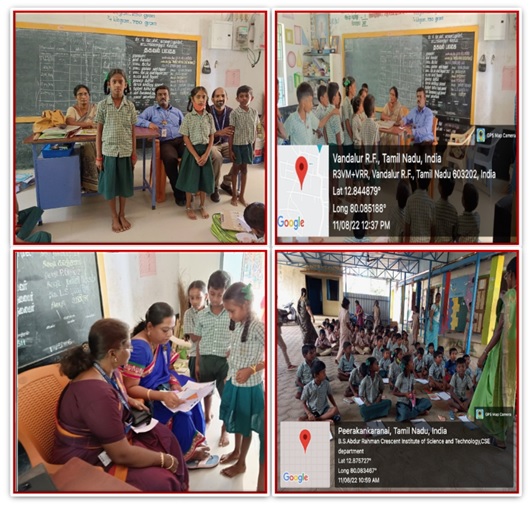
Figure XVII (4.3) – 2: Educational outreach by organizing competitions for school children
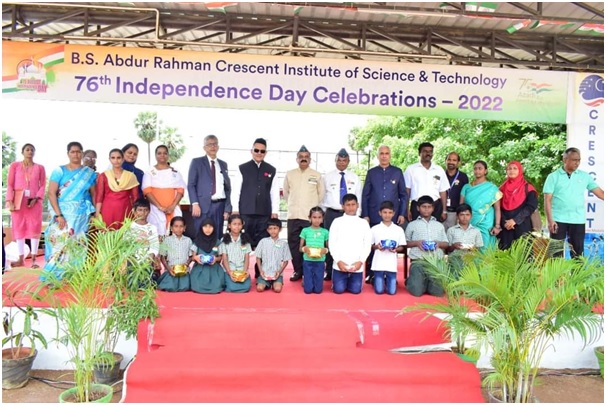
Figure XVII (4.3) – 3: Awarding Ceremony @ Crescent Campus
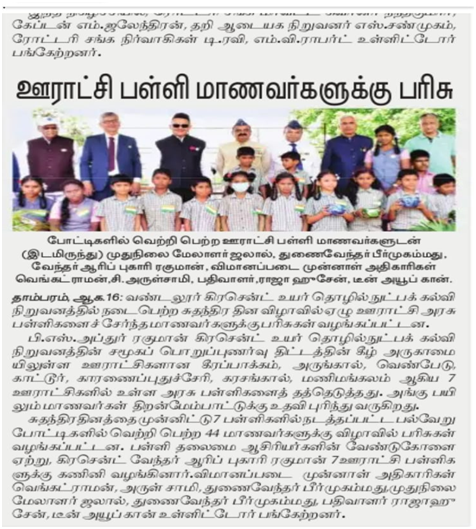
Figure XVII (4.3) – 4 : Newspaper Coverage
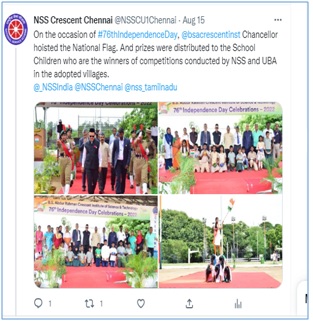
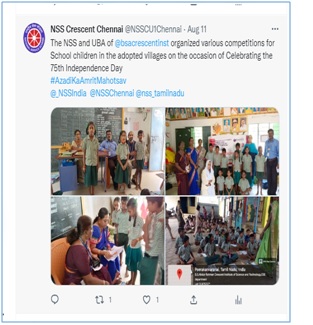
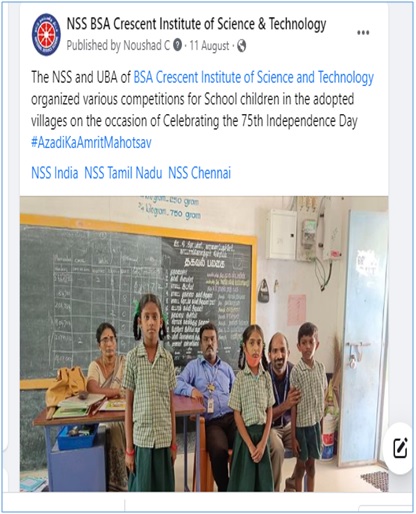
Figure XVII (4.3) – 5: Independence Day Celebration
Educational Outreach – II
Empowering Local Schools through Educational Outreach Initiatives by BSACIST: Fostering Lifelong Learning in the Community
Commitment to Community Development through Educational Outreach
B.S. Abdur Rahman Crescent Institute of Science and Technology (BSACIST) has actively engaged in educational outreach activities beyond its campus, demonstrating a commitment to community development and the enhancement of local education. A notable initiative involved distributing computers to primary school children in the adopted villages of Keerapakkam and Karasangal on September 12, 2022.
This event, presided over by the Honourable Vice Chancellor, Dr A. Peer Mohamed, alongside Dr Raja Hussain, the Registrar of BSACIST, and local panchayat leaders, underscores the university’s dedication to improving educational resources in underserved areas.
Bridging the Digital Divide for Enhanced Learning Opportunities
The distribution of computers is a significant step in bridging the digital divide and enhancing learning opportunities for young students in these villages. By providing access to technology, BSACIST equips children with essential tools for their education and fosters an environment where they can develop digital literacy skills crucial for their future academic and professional endeavours.
This initiative reflects the university’s understanding of integrating technology into education, particularly in rural settings with limited resources.
Engaging the Local Schools through Tailored Computer Educational Initiatives
In addition to the computer distribution, BSACIST’s outreach efforts include tailored lectures and demonstrations conducted by students and faculty in local schools. These voluntary student-run schemes aim to engage the community through interactive learning experiences that address specific educational needs. By bringing knowledge and expertise directly to the local population, the university fosters a collaborative learning environment that benefits students and community members, enhancing the overall educational landscape. Through these outreach activities, BSACIST exemplifies how academic institutions can play a vital role in community empowerment and development.
The university fulfils its mission of promoting lifelong learning by extending educational initiatives beyond the campus. It strengthens its ties with the community, ensuring that education remains accessible and relevant. Such efforts contribute to building a more informed and capable society, highlighting the transformative power of education in fostering positive change.
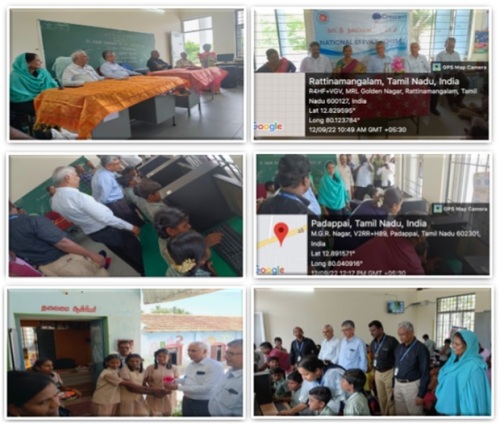
Figure XVII (4.3) – 6 : Empowering Young Minds: BSACIST’s Educational Outreach Initiative in Padappai and Rattinamangalam – Distributing Computers and Enhancing Learning Opportunities for Local Schools
SDG 6 – CLEAN WATER AND SANITATION
COMMUNITY ACTION FOR CLEAN WATER: NSS VOLUNTEERS TRANSFORM LOCAL POND
INTRODUCTION
Water is an essential resource for life, yet its management and conservation often require concerted community efforts. The B.S. Abdur Rahman Crescent Institute of Science and Technology NSS (National Service Scheme) Student Volunteers have significantly promoted conscious water usage on 23.09.2023 at Karanai Puducherry Panchayat, Vandalur Taluk, Chengalpattu District of Tamil Nadu through a hands-on conservation initiative centred around a local pond. Their dedication to this cause enhances the water source’s health and cultivates environmental responsibility within the wider community.
FOCUS ON POND CONSERVATION
The B.S. Abdur Rahman Crescent Institute of Science and Technology NSS Student Volunteers have zeroed in on a local pond, recognising its critical role in the ecosystem and community. Their initiative encompasses several vital activities aimed at rejuvenating the pond and fostering a culture of water conservation.
- Clean-Up and Maintenance
- The volunteers are actively engaged in clearing debris from the pond area. By removing litter and waste, they help maintain the water’s quality and contribute to the overall health of the surrounding environment.
- This hands-on approach cleans the area and showcases the importance of protecting natural habitats from pollution. The volunteers’ commitment is evident as they carry bags filled with collected garbage, representing their dedication to environmental stewardship.
- Enhancing Community Awareness
- The B.S. Abdur Rahman Crescent Institute of Science and Technology NSS Student Volunteers are focused on physical clean-up and educating the community about the significance of conscious water usage. By sharing their experiences and knowledge, they encourage others to recognise the importance of preserving water resources.
- Through workshops, demonstrations, and community outreach, the volunteers promote practices that lead to responsible water consumption, highlighting simple changes that can make a significant difference.
IMPACT ON THE COMMUNITY
The efforts of the NSS Student Volunteers extend beyond the immediate physical improvements to the pond. Their work fosters a broader sense of environmental consciousness and responsibility within the community:
- Inspiring Collective Action: By actively participating in clean-up efforts, the volunteers inspire others to take action, creating a ripple effect that encourages community members to engage in similar initiatives.
- Educating the Next Generation: Through their efforts, these students serve as role models for younger generations, instilling the values of environmental care and the importance of sustainable practices from an early age.
- Fostering Community Pride: The visible improvements in the pond and surrounding area promote a sense of pride among community members, reinforcing that collective efforts can lead to tangible environmental benefits.
The B.S. Abdur Rahman Crescent Institute of Science and Technology, NSS Student Volunteers, have taken commendable steps to promote conscious water usage and environmental stewardship in their community through their focused efforts on pond conservation. Their activities contribute to the health and sustainability of a vital water source and empower the community through education and engagement. By fostering a culture of responsibility towards water conservation, they set a powerful example of how proactive initiatives can lead to lasting change in environmental attitudes and practices.
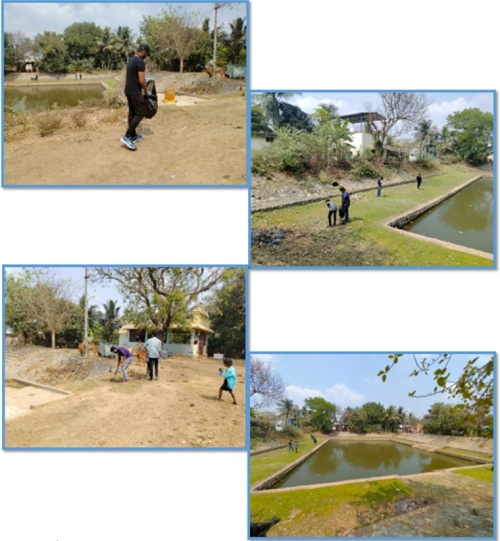
Figure XVII (4.3) – 7 : NSS Student Volunteers – clean the pond and its surrounding area
THREE-DAY PROGRAM FOCUSED ON THE CONSCIOUS WATER CONSERVATION PROGRAM FOR PRIMARY SCHOOL STUDENTS IN AN ADOPTED VILLAGE – DATED: 23.09.2022
The B.S. Abdur Rahman Crescent Institute of Science and Technology is dedicated to promoting conscious water usage, a critical aspect of sustainable living beyond the campus’s confines. Recently, the National Service Scheme (N.S.S.) and Urban Body Association (U.B.A.) organised a three-day program focused on the Conscious Water Conservation Program for primary school students in an adopted village. This initiative engaged over 30 schoolchildren, highlighting the value of education in fostering a culture of water conservation within the community.
The Conscious Water Conservation Program was designed to educate young minds and instil a sense of responsibility towards water conservation. N.S.S. and U.B.A. volunteers played a crucial role in delivering the content, teaching children about the significance of water as a vital resource for life by emphasising the various uses of water, including drinking, sanitation, and agriculture. The program aimed to create a comprehensive understanding of why water conservation is vital in today’s world. This foundational knowledge is essential for encouraging children to think critically about their water usage habits in the future.
Interactive activities enhanced the learning experience, making it engaging for the young participants. Through discussions and hands-on activities, children explored practical methods of conserving water, such as minimizing waste during daily routines and understanding the importance of rainwater harvesting. These interactive components made learning enjoyable and provided students with tangible actions they could incorporate into their lives to contribute to water conservation efforts.
The program extended beyond just educating children; it also aimed to empower them to become advocates for water conservation in their families and communities. The institute aims to create future leaders who prioritise responsible water usage by instilling a sense of environmental stewardship. When children bring these lessons home, they can influence their families’ habits, amplifying the program’s impact throughout the community.
Collaboration with local community leaders and parents played a vital role in the success of this initiative. By promoting the importance of water conservation through community networks, the institute fosters a collective responsibility towards sustainable water management. Such partnerships pave the way for broader outreach and the potential to enact community-wide changes in behaviour regarding water usage.
Looking ahead, the B.S. Abdur Rahman Crescent Institute of Science and Technology is committed to sustaining these efforts to promote conscious water usage within the community. By expanding initiatives like the water importance program, the institute aims to reinforce the knowledge gained and encourage continuous engagement in responsible water management. As the community becomes more aware and proactive about water conservation, it will contribute to a healthier environment and a more sustainable future for all.
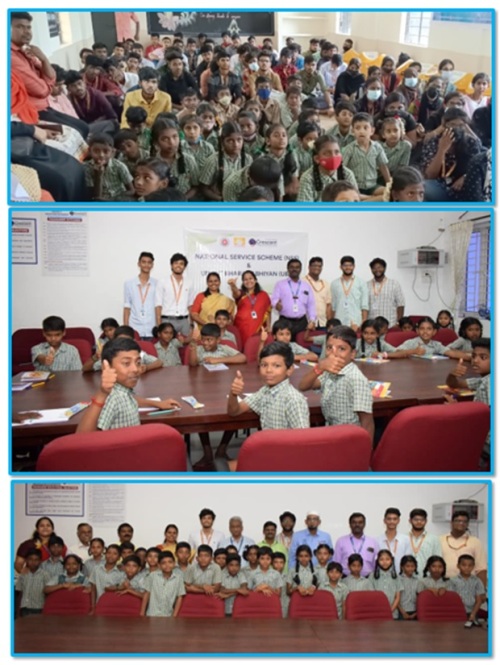
Figure XVII (4.3) – 8 : Students actively participate in the three-day Conscious Water Conservation Program
SDG 7 – AFFORDABLE AND CLEAN ENERGY
Empowering Communities: Sustainable Technologies and Environmental Stewardship
In today’s world, energy efficiency and clean energy practices are crucial for sustainable development and combating climate change. Local community outreach plays a vital role in educating residents on the importance of these concepts, equipping them with the knowledge and tools necessary to reduce their energy consumption and transition towards cleaner energy sources. Through targeted programs, communities can foster a sense of responsibility and agency in addressing energy issues, ultimately leading to a more sustainable future.
One of the primary objectives of local outreach programs is to raise awareness about energy efficiency. This involves organizing workshops, seminars, and information sessions that highlight the benefits of energy-saving techniques. Participants learn about simple yet effective measures, such as using energy-efficient appliances, implementing smart thermostats, and embracing renewable energy solutions like solar panels. By demystifying these concepts and presenting them in an accessible manner, outreach initiatives empower community members to take actionable steps toward reducing their energy consumption.
Moreover, hands-on training and demonstrations are effective strategies for engaging residents and promoting energy efficiency. Programs can include home energy audits, where trained volunteers assist families in identifying energy-wasting practices and suggest improvements. Furthermore, community energy challenges can stimulate friendly competition among residents, encouraging them to adopt energy-saving habits while fostering a sense of camaraderie. These interactive approaches not only educate participants but also create a supportive environment that motivates individuals to make lasting changes.
Lastly, collaboration with local governments, non-profit organizations, and businesses is crucial for the success of outreach initiatives. By leveraging resources and expertise, these partnerships can enhance the scope and impact of energy efficiency programs. Providing incentives, such as rebates for energy-efficient appliances, or organizing community events that promote local clean energy projects can further encourage participation. Ultimately, local community outreach for energy efficiency serves as a foundation for cultivating informed, engaged citizens committed to creating a sustainable future for their neighborhoods and beyond.
Activities:
- The Crescent Energy Club’s Outreach Initiatives – “Energy 99 – An initiative to practice 9 Energy Mantras” – designed to reduce energy consumption and lower electricity costs
- Guest Lecture on “Sustainable Construction Technologies – A Way Forward” – Organized by Department of Civil Engineering
- Community Empowerment Through Tree Plantation Initiatives – “Green Tamil Nadu” – NSS, BSACIST jointly organized with the Government of Tamil Nadu
- “MeriLiFE – Massive Tree Plantation Drive 2023 – One Student – One Tree” jointly organized with All India Council for Technical Education (AICTE)
A. Energy 99: Empowering Communities Through the 9 Energy Mantras – An Initiative”
The Crescent Energy Club, as outlined in the magazine, is dedicated to fostering a culture of sustainability and energy efficiency within the local community. Through various initiatives and events, the club aims to educate residents about the significance of energy conservation and the adoption of clean energy practices. By engaging with the community, the club not only raises awareness but also empowers individuals to make informed choices that contribute to a sustainable future.
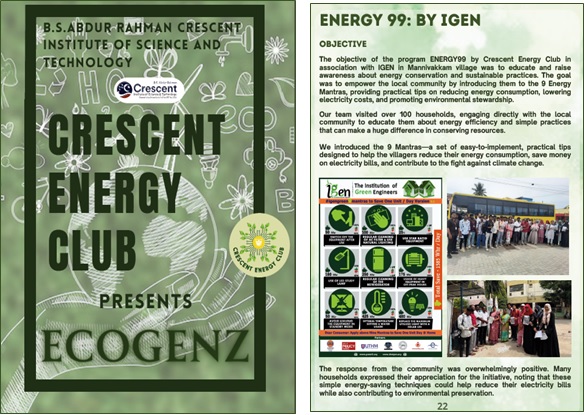
Figure XVII (4.3) – 9 : Crescent Energy Club – ECOGENZ Magazine
Educational Programs and Initiatives
One of the key programs highlighted is the “Energy 99” initiative, which focuses on educating local households in Mannivakkam village about energy conservation. The club’s team visited over 100 homes, introducing residents to practical tips and the “9 Energy Mantras” designed to reduce energy consumption and lower electricity costs. This hands-on approach not only informs the community about energy efficiency but also encourages them to implement these practices in their daily lives, thereby fostering a sense of responsibility towards environmental stewardship.

Figure XVII (4.3) – 10 : Crescent Energy Club – 9 Energy Mantras designed to reduce energy consumption and lower electricity costs
Community Engagement and Participation
The club’s outreach efforts extend beyond mere education; they actively involve community members in various activities. This interactive approach not only raises awareness but also builds a network of individuals committed to environmental conservation, demonstrating the club’s dedication to creating a collaborative community focused on energy efficiency.
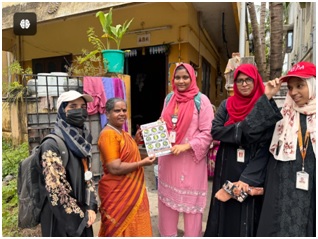
Figure XVII (4.3) – 11 : Crescent Energy Club – 9
Energy Mantras – Distribution of posters – Creating a collaborative community focused on energy efficiency
Impact and Future Directions
The outcomes of these outreach programs are significant, as they lead to increased knowledge and awareness of clean energy practices among community members. The Crescent Energy Club’s initiatives have inspired many to adopt energy-efficient habits, contributing to a broader movement towards sustainability. Looking ahead, the club plans to continue its efforts by organizing more educational events and workshops, ensuring that the local community remains engaged and informed about the importance of energy efficiency and clean energy solutions. Through these ongoing initiatives, the Crescent Energy Club aims to create lasting change and promote a culture of sustainability within the community.
B. Community Empowerment through Sustainable Construction Technology Awareness
B.S. Abdur Rahman Crescent Institute of Science and Technology demonstrates a robust approach to local community outreach for energy efficiency through strategic educational initiatives. The institute organized a significant guest lecture on “Sustainable Construction Technologies – A Way Forward” delivered by Dr. Shweta Goyal from Thapar Institute of Engineering & Technology, highlighting the critical importance of sustainable development and energy-efficient practices. This event exemplifies the institution’s commitment to spreading awareness about environmental conservation and innovative construction methodologies that minimize carbon emissions.
The lecture comprehensively addressed key sustainability challenges, emphasizing the concept of zero carbon and zero waste through practical strategies like reduce, reuse, and recycle. Dr. Goyal elaborated on critical aspects of carbon emission reduction, including the importance of energy-efficient infrastructure, utilization of low-carbon alternatives, material reuse, and waste minimization. By introducing advanced concepts such as Life Cycle Assessment (LCA) and highlighting emerging technologies like fiber-reinforced concrete and 3D printed buildings, the program provided local community members with cutting-edge insights into sustainable construction practices and their environmental implications.
The outreach program’s primary objective was to educate participants about sustainable development that meets present needs without compromising future generations’ capabilities. By focusing on practical solutions and innovative technologies, the institute created an interactive platform for knowledge dissemination, encouraging community members to understand and adopt energy-efficient practices. The lecture not only shared theoretical knowledge but also provided actionable strategies for reducing carbon emissions, thereby empowering local residents to contribute meaningfully to environmental conservation and sustainable urban development.
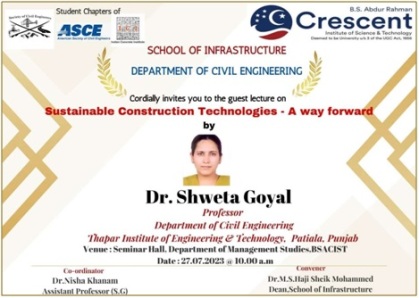
Figure XVII (4.3) – 12 : Invitation for the Guest Lecture – Sustainable Construction Technologies – A way forward
The guest lecture on ‘Sustainable Construction Technology – A way forward’ was delivered by the guest speaker by Dr. Shweta Goyal, Professor, Department of Civil Engineering from Thapar Institute of Engineering & Technology, Patiala, Punjab, which was organised by Department of Civil Engineering, School of Infrastructure, and held on 27th July 2023 at Seminar hall, Department of Management Studies. The event was coordinated by Dr. Nisha Khanam Assistant Professor (Sl. Gr), Department of Civil Engineering. The speaker initiated the talk by stating the contribution she has done in the construction industry pertaining to the sustainability through her research work and publications.
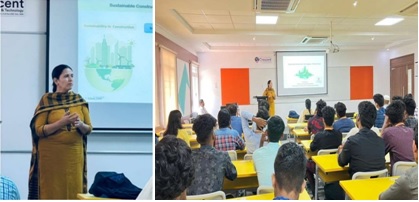
Figure XVII (4.3) – 13 : Engaging Minds: A Workshop on Sustainable Technologies
The speaker highlighted about the sustainable development which is nothing but the development that meets the needs of the present, without compromising the ability of future generations to meet their own needs. In order to attain sustainability first the challenges faced by the industry must be studied. The challenges faced are cost, quality and time taken for the raw materials to be transformed to the final product.
The speaker further mentioned the importance of zero carbon and zero waste by the process of reduce, reuse, and recycle. Zero carbon emission can be divided into embodied and operational carbon. Embodied carbon emission is emitted during the construction and transportation process whereas operational carbon is emitted aftermath the construction.
To reduce the embodied carbon which contributes 49% of carbon the following steps are emphasized
- Energy efficient infrastructure
- Use low carbon alternatives
- Reuse materials
- Minimise waste
In order to understand the carbon emission, she briefed about LCA – Life Cycle Assessment which is a flow chart of carbon at different levels.
- Cradle to cradle – from manufacturing till recycle
- Cradle to grave – till demolition
- Cradle to handover – till building is hand overed
- To construction site – carbon emission taking place till construction
- To gate – carbon reduction at industry level
The steps that can be taken to initiate zero carbon and zero waste are by using supplementary cementitious materials, high performance material, utilization of waste for construction, extending the usable life of a structure. Further she briefed about fibre reinforced concrete, textile reinforced concrete and some new generation technology such as 3D printed buildings which can be implemented in future for sustainable development.
C. Community Engagement for Energy Efficiency and Environmental Sustainability – Collaboration with State Government
B.S. Abdur Rahman Crescent Institute of Science and Technology is committed to fostering a sustainable and energy-conscious community through various outreach programs focused on energy efficiency and clean energy solutions. In addition to educational initiatives, the institute actively participates in community service events, such as the recent tree plantation drive during N.S.S. Day celebrations. The N.S.S. unit planted 200 trees as part of the “Green Tamil Nadu” program, organized by the Tamil Nadu Government. This event, attended by over 300 volunteers and dignitaries including Chief Minister Thiru. M. K. Stalin, showcased the institute’s commitment to environmental stewardship. Such activities not only promote awareness about energy efficiency and clean energy but also engage the local community in practical actions that contribute to sustainability and ecological balance. Through these combined efforts, B.S. Abdur Rahman Crescent Institute aims to empower residents with knowledge and inspire collective action towards a greener future.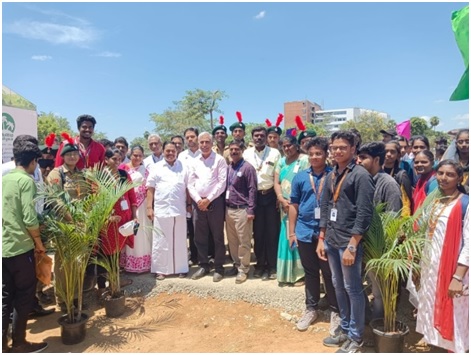
Figure XVII (4.3) – 14 : Community Empowerment Through Tree Plantation Initiatives – BSACIST Students
D. Community Outreach for Energy Efficiency Through Tree Plantation Drive – A Collaborative initiative with All India Council for Technical Education (AICTE)
B.S. Abdur Rahman Crescent Institute of Science and Technology actively participates in local community outreach aimed at promoting energy efficiency and clean energy practices. A notable initiative is the “MeriLiFE – Massive Tree Plantation Drive 2023,” which encompasses the theme “One Student – One Tree.” This program, organized by the All India Council for Technical Education (AICTE), encourages students to engage in tree planting as a means of fostering environmental stewardship and raising awareness about sustainable practices.
The tree plantation drive not only contributes to enhancing green cover but also serves as an educational opportunity for participants to learn about the significance of trees in reducing carbon footprints and improving air quality. The event saw enthusiastic participation from students and faculty, who gathered to plant trees and further the cause of sustainability. By combining the efforts of these outreach programs with hands-on activities like tree planting, the institute effectively promotes the importance of energy efficiency and clean energy within the community, encouraging a shift towards more sustainable living practices.
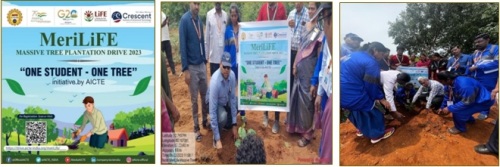
Figure XVII (4.3) – 15 : MeriLiFE: Cultivating a Greener Future Through Student Engagement – One Student-One Tree
OTHER SDGS OUTREACH EDUCATIONAL ACTIVITIES/ INITIATIVES
Policy for Partnerships for the Goals
Issue: 04; Revised on 2023
| Policy Created on | July 2009 |
| 1st Revision amended on | IQAC Meeting held on 27th October 2017 |
| 2nd Revision amended on | IQAC Meeting held on 31st March 2021 |
| 3rd Revision amended on | IQAC Meeting held on 16th June 2023 |
17.1. OBJECTIVE
The primary objective of this policy is to establish and strengthen partnerships among universities, government bodies, NGOs, and the private sector to promote sustainable development through collaborative efforts, knowledge sharing, and resource mobilisation.
17.2 STATEMENT OF POLICY
The following metrics and indicators will guide the implementation of this policy.
- Research into Partnerships for the Goals: Increase the proportion of academic publications co-authored with low or lower-middle-income countries to foster global collaboration.
- Relationships to Support the Goals: Develop mechanisms to gather data on SDG progress and promote best practices through cross-sectoral dialogue.
- Publication of SDG Reports: Institutions must commit to publishing data on their performance against each of the 17 SDGs, ensuring transparency and accountability.
- Education for SDGs: Ensure a commitment to meaningful education around the SDGs across all university programs relevant to all students.
- Collaboration for SDG Best Practices: Engage in international collaboration to review and develop best practices for tackling the SDGs.
17.3 RESPONSIBILITIES
- Establish Collaborative Frameworks:
- Create Memoranda of Understanding (MoUs) with local and international organizations, NGOs, and government agencies to formalise partnerships.
- Engage in joint research initiatives that align with SDGs
- Enhance Sustainability Literacy:
- Integrate sustainability concepts into the curriculum across all disciplines, ensuring that students acquire the necessary knowledge, skills, and values to contribute to sustainable development.
- Implement workshops and training sessions for faculty and students to enhance understanding of the SDGs and their interconnections.
- Promote Cross-Sectoral Dialogue:
- Organize annual conferences and seminars that bring together stakeholders from academia, industry, and government to discuss progress, challenges, and innovative solutions related to the SDGs.
- Facilitate platforms for knowledge exchange, such as webinars and collaborative projects, to share best practices and successful case studies.
- Monitor and Evaluate Partnerships:
- Develop a robust monitoring and evaluation framework to assess the effectiveness of partnerships and their contributions to achieving the SDGs.
- Utilize data collected from partnerships to inform policy decisions and improve collaborative efforts.
17.4 IMPLEMENTATION
- Short-term (1-2 years): Establish partnerships, integrate sustainability literacy into the curriculum, and initiate cross-sectoral dialogues.
- Medium-term (3-5 years): Expand collaborative research projects, publish annual SDG reports, and evaluate the impact of partnerships.
- Long-term (5+ years): Foster a culture of sustainability within the institution and the community, ensuring ongoing commitment to the SDGs.
17.5 DISSEMINATION OF POLICY
. A. Signage and Visual Communication
- Campus Signage:
- Display clear and informative signage throughout the campus highlighting key aspects of the Partnerships for the Goals policy, focusing on sustainability practices.
- Utilize engaging visuals and infographics that effectively capture attention and communicate important messages.
B. Awareness Programs
- Regular Workshops and Seminars:
- Conduct awareness programs at regular intervals, including workshops, seminars, and training sessions to educate the campus community about the importance of partnerships for sustainability.
- Use interactive formats to promote engagement, encourage dialogue, and facilitate knowledge sharing among participants.
- Student and Faculty Involvement:
- Involve students and faculty in planning and executing awareness programs, fostering a sense of ownership and responsibility towards the policy’s implementation.
- Encourage student-led initiatives that promote collaboration and sustainability practices across campus.
C. Digital Communication
- Website Updates:
- Post the Partnerships for the Goals policy on the Institute’s official website, ensuring easy access for all stakeholders.
- Regularly update the webpage with new information regarding events, initiatives, and progress related to the policy.
- Social Media Engagement:
- Utilize social media platforms to raise awareness about the policy, share success stories, and promote upcoming events related to partnerships and sustainability.
- Create engaging content, including videos, infographics, and testimonials, to reach a broader audience and enhance visibility.
D . Key Performance Indicators (KPIs)
- Track the effectiveness of dissemination strategies through metrics.
17.6 ENFORCEMENT OF POLICY
a) The Dean of Schools and Head of the Departments monitor compliance and address breaches.
b) Awareness of the policy among students, staff, and visitors is essential.
c) Breaches may lead to disciplinary action per the Institute’s code of conduct.
REGISTRAR


